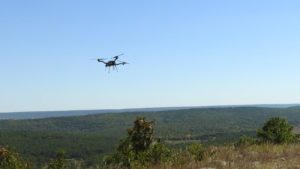
Continue reading below, or listen:
The GAO report on Drone Integration concluded with four recommendations:
- “The Administrator of FAA should develop a drone integration strategy that includes all seven elements of a comprehensive strategy”;
- “The Administrator of FAA should evaluate its current documentation to identify options to more clearly communicate how applicants can satisfy drone operational request requirements, and communicate FAA’s internal process for reviewing and approving operational requests”;
- “The Administrator of FAA should develop and document a formal lessons-learned process for its drone integration activities that includes all six key practices for a lessons-learned process”;
- “The Administrator of FAA should implement the formal lessonslearned process it develops for its ongoing drone integration activities, including Part 107 waiver reviews and the BEYOND program.”
Primarily, the report calls for streamlining and clarifying the processes for receiving authorization for advanced operations, stating that “more than half of 15 industry stakeholders told GAO that FAA has not clearly communicated the requirements it looks for when reviewing and approving advanced operations.”
Commentary: The frustration of the drone industry is clear, as they struggle to work through the processes to implement immediate use cases. Drone Integration is critical for the scaling of the industry, and it isn’t moving as fast as many would like – but the process is also subject to input from a wide variety of other government agencies and stakeholders. Since the FAA issued the first airworthiness certificate in 2005, the drone industry has developed at a break-neck pace when compared to the development of regulation and infrastructure for technologies such as manned aviation and autonomous cars. (For reference, GM displayed the first autonomous car in 1939, and built one in 1959. It’s been more than 25 years since the first autonomous car actually drove all the way across the US.) Check out the FAA’s timeline of drone integration here for an outline of the progress made- and a reminder of how many different aspects of drone integration there really are.
Communication is essential, as are clear standards and guidelines. Streamlining complex authorization processes will certainly help scale the drone industry. (The FAA has made significant progress over time on this issue, including the LAANC program.) The GAO recommendations are not unreasonable, but they are a big ask – and a lot of documentation – from a small department in a Federal agency currently dealing with the transition to a permanent FAA administrator, geopolitical turmoil, unidentified objects over US airspace and Chinese weather balloons. Drone integration is a broad topic, encompassing new technologies, new processes, new use cases, and a wide variety of stakeholders. While improved communications and clearer definitions would certainly benefit the commercial drone industry, requiring more reporting and academic papers might take away from already stretched resources at the FAA. The GAO might usefully have recommended more funding and staffing for the office to speed up the process.
Read more:
- This Spring, FAA Tests UTM Systems to Move Forward on Drone Integration
- FAA UAS Symposium: Rep. Rick Larsen and Perspectives from Capitol Hill on Drone Integration
- Mercatus Center: Drone Highways are the Road to Commercial Drone Integration
- Former House Aviation Chair Trashes Drone Integration and Zoning Act
Miriam McNabb is the Editor-in-Chief of DRONELIFE and CEO of JobForDrones, a professional drone services marketplace, and a fascinated observer of the emerging drone industry and the regulatory environment for drones. Miriam has penned over 3,000 articles focused on the commercial drone space and is an international speaker and recognized figure in the industry. Miriam has a degree from the University of Chicago and over 20 years of experience in high tech sales and marketing for new technologies.
For drone industry consulting or writing, Email Miriam.
TWITTER:@spaldingbarker
Subscribe to DroneLife here.